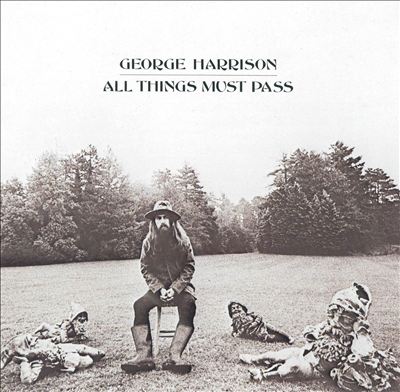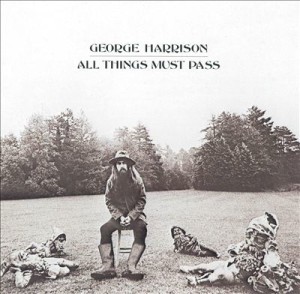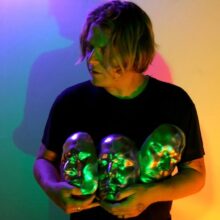

GEORGE HARRISON – ALL THINGS MUST PASS
Released November 27, 1970 – 45 years ago
Harrison’s third solo release, drawing on his backlog of unused late Beatles-era compositions, is widely considered his best studio album. Lush, sweeping arrangements support haunting melodies and introspective lyrics in this spiritual exploration. A masterful work that reveals more and more with each listen.
The Classic Pick is a weekly feature at 4pm M-F on The Home Stretch, sponsored by the Good Oak Bar and curated by Kris Kerry. Each Monday at 4pm Kris stops by KXCI’s studio to give us insight on this classic album at 91.3FM and kxci.org.
Interesting Info:
With the break up of the Beatles in 1970, all four of the Beatles launched solo careers. While Harrison had released two previous albums that were not widely distributed, Wonderwall Music and Electronic Sound in 1968 and 1969, All Things Must Pass effectively served as the artist’s studio debut to the world.
Originally released as a triple LP, All Things Must Pass cemented his reputation as a mystic seeker with a spiritual-religious theme running throughout the album. It also showcased Harrison’s superlative songwriting skills. Several songs here were originally offered up to the Beatles, who passed them up. These included the monster hits “My Sweet Lord” and “What Is Life.”
Harrison shares production credit with Phil Spector, the iconic producer known for his “wall of sound” music production formula creating a reverb dense aesthetic that came across well on mono recordings of 1960s AM radio and jukeboxes. In addition to the Beatles and John Lennon, Spector worked with several other famous artists such as Motown acts The Crystals and The Ronnettes, Ike and Tina Turner, Leonard Cohen, and The Ramones.
Aside from creating much of the 60s sound of rock, Spector is one of music’s most eccentric recluses, rarely appearing in public. He was tried and sentenced to 20 years for the death of actress/model Lana Clarkson in 2009.
The bulk of All Things Must Pass was recorded at Abby Road Studios. Built in 1931 by EMI it stands as one of the most preeminent recording studios in history. Some of the countless artists that have recorded there include Burt Bacharach, Blur, The Black Keys, Nick Cave, Depeche Mode, Ella Fitzgerald, Michael Jackson, Elton John, Oasis, Pink Floyd, Queen, Radiohead, James Taylor, U2 and Stevie Wonder.
All Things Must Pass received almost universal critical acclaim on its release, not only for its music and lyrical content, but also for the fact that Harrison, often referred to as “the quiet Beatle,” had the public persona of a somewhat “junior” member of the band with Ringo Starr who took a creative second stage to John Lennon and Paul McCartney.
Commercially, All Things Must Pass was a huge commercial success as well, reaching number 3 on the US Billboard charts, receiving two Grammy nominations, and reaching 6x Platinum status in record sales.
The influence of All Things Must Pass can’t be over stated. Nearly every music critic considers it a very important release, using adjectives like “epic,” “audacious,” “grandiose,” and “superlative.” Many consider it the best solo album of a former Beatle, and it appears in virtually ever “top albums of all-time” and “recordings to hear before you die” list.
All Things Pass features an impressive list of contributing musicians, which include Eric Clapton, Peter Frampton, Billy Preston, Ringo Starr, Ginger Baker, and members of Badfinger among others. Also, Bob Dylan shares writing credit on “I’d Have You Anytime” and “If Not For You.”
Harrison, along with John Lennon, Paul McCartney, and Ringo Starr, all have minor planets/asteroids named after them.
In 1997 Harrison, a life-long smoker, was diagnosed with throat cancer. By 2001 it had spread to his brain and lungs. He died on November 29 of that same year.
After his death, Harrison was inducted into the Rock ‘n’ Roll Hall of Fame for his solo work. He is one of a handful of people inducted twice, already being inducted as a member of the Beatles in 1998.




